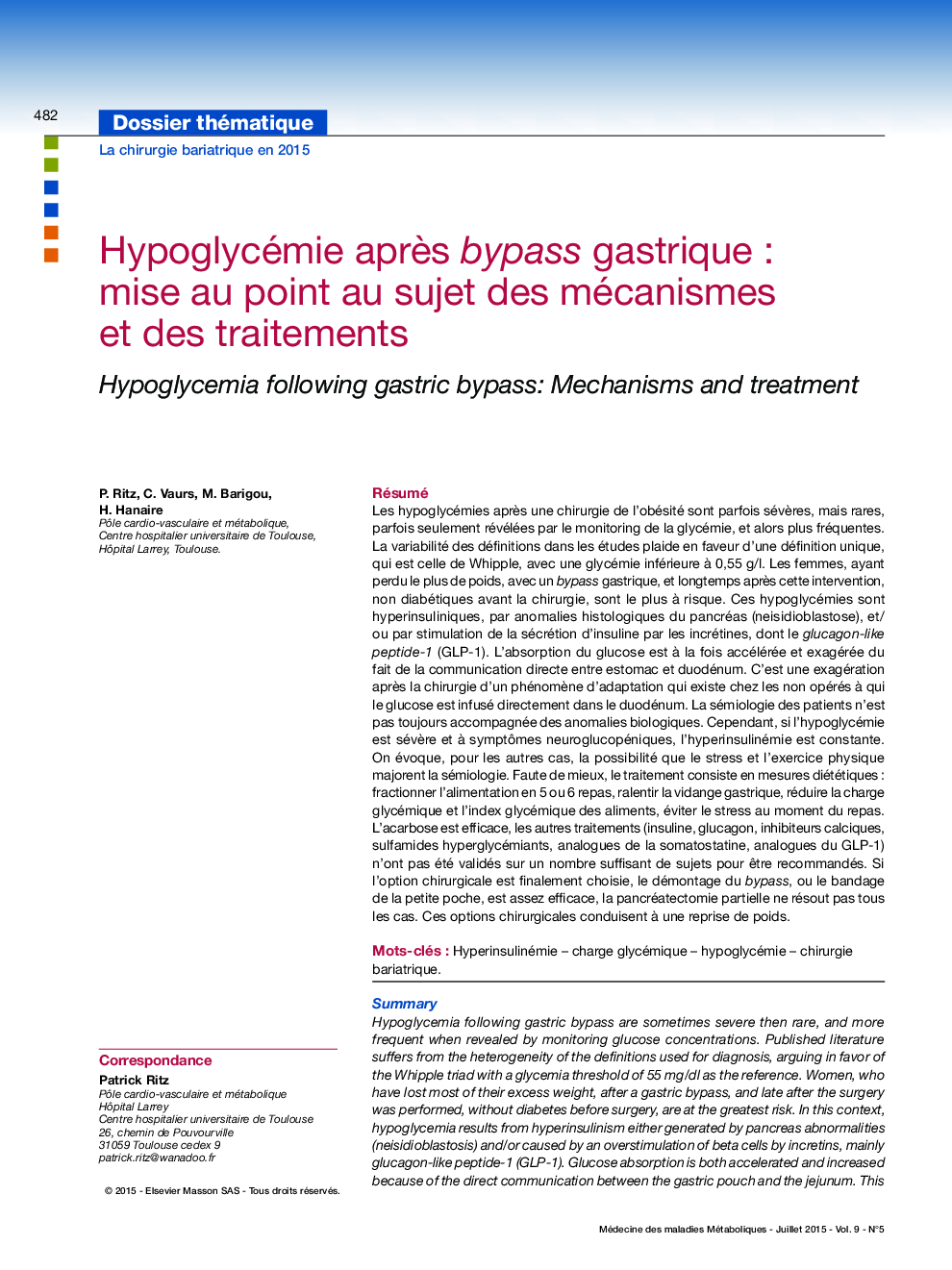| Article ID | Journal | Published Year | Pages | File Type |
|---|---|---|---|---|
| 3274434 | Médecine des Maladies Métaboliques | 2015 | 6 Pages |
Abstract
Hypoglycemia following gastric bypass are sometimes severe then rare, and more frequent when revealed by monitoring glucose concentrations. Published literature suffers from the heterogeneity of the definitions used for diagnosis, arguing in favor of the Whipple triad with a glycemia threshold of 55 mg/dl as the reference. Women, who have lost most of their excess weight, after a gastric bypass, and late after the surgery was performed, without diabetes before surgery, are at the greatest risk. In this context, hypoglycemia results from hyperinsulinism either generated by pancreas abnormalities (neisidioblastosis) and/or caused by an overstimulation of beta cells by incretins, mainly glucagon-like peptide-1 (GLP-1). Glucose absorption is both accelerated and increased because of the direct communication between the gastric pouch and the jejunum. This is an exaggeration after surgery of a natural adaptation that is seen in non-operated patients in whom the glucose is infused directly into the jejunum. There is not always a correspondence between symptoms and biological traits. However, hyperinsulinism is constant if hypoglycemia is severe and with neuroglucopenic symptoms. In the other cases, either stress or physical exercise might trigger the symptoms. The treatment relies firstly on changes in eating habits, splitting food intake into 5 to 6 daily meals, slowing gastric emptying, reducing the glycemic load and glycemic index of foods, avoiding stress at meals. Pharmacological treatment with acarbose is efficient, others drugs still need to be validated on a greater number of subjects (insulin, glucagon, calcium channel blockers, somatostatin analogs, GLP-1 receptor agonists). At last, if the surgical option has to be used, the benefits (efficient symptoms relief) and the risks (weight regain, diabetes) should be weighed carefully.
Related Topics
Health Sciences
Medicine and Dentistry
Endocrinology, Diabetes and Metabolism
Authors
P. Ritz, C. Vaurs, M. Barigou, H. Hanaire,
